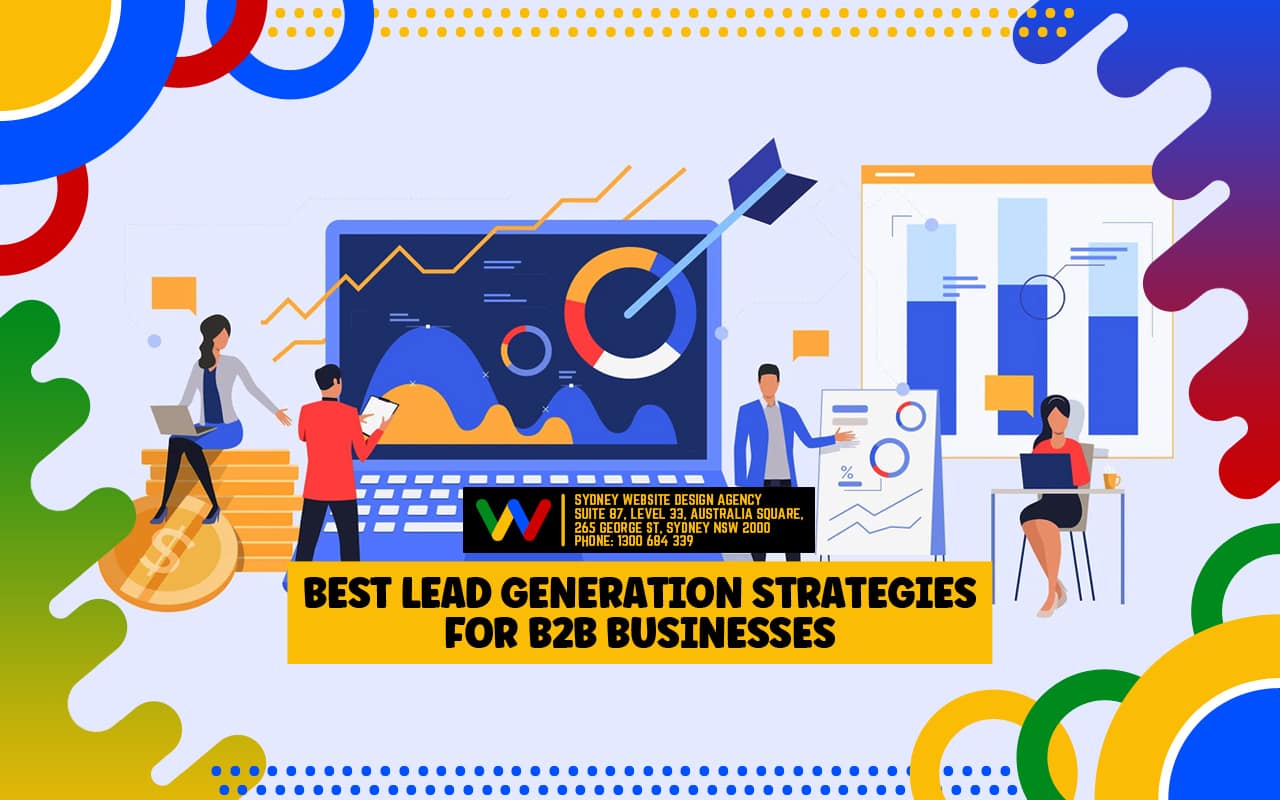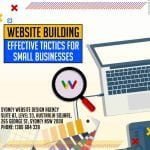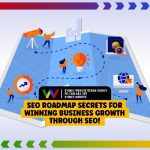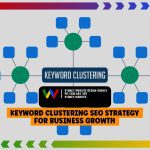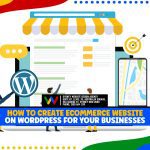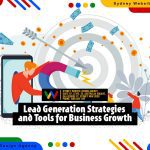Growing Any Business with Lead Generation
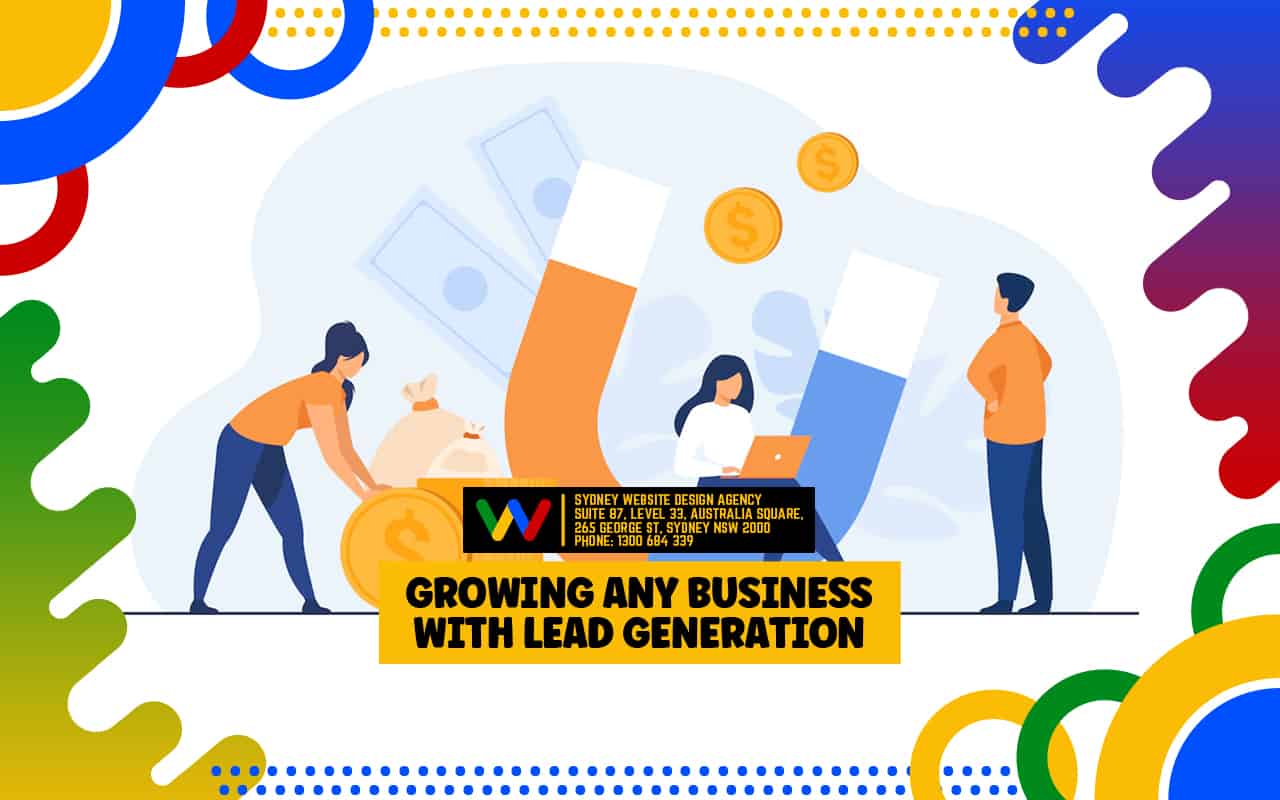
Generating leads is essential for any business, no matter its size. Leads are potential customers who have expressed interest in what you have to offer, and converting them into paying customers is the goal of any successful company. But how do you go about generating leads in the first place?
There are several methods businesses can use to get started with lead generation, but not all of them are created equal. Some lead generation techniques work better than others depending on your industry, your target market, and your overall marketing strategy.
In this blog post, we’ll discuss three of the most common lead generation techniques used by businesses today: online advertising, content marketing, and email marketing. We’ll also give you some tips on how to choose the right technique for your business.
Introduction
Lead generation is a strategy that brings in more customers to your business. If you seriously want your business to sustain itself and grow in the future, it is important to invest in tactics that would bring you more customers. Unless you do so, growth is a distant dream that you may never achieve as an organisation.
To maintain a steady revenue flow for your business, you need to bring in more customers and sales to your business. Again, you can only achieve this by tapping into a correct audience that can potentially buy your product or services.
It is really indispensable to attract, engage and convert new clients into paying customers for your business. But what if you also offer services yourself as an organisation? How can you generate leads to your company if you are a B2B business?
Table of Contents
What is Lead Generation

Lead Generation is getting people interested in what you have to offer. It’s important for any company, no matter how big or small it is. Converting potential customers into paying customers is the goal of any successful company.
There are many ways to generate leads, but not all of them work equally well for every business. In this blog post, we’ll discuss three common lead generation techniques: online advertising, content marketing, and email marketing. We’ll also give you some tips on how to select the right technique for your business.
Common Lead Generation Strategies
Online advertising
This involves the placement of ads on websites to draw potential customers. It is one of the most popular methods for generating leads, especially among larger companies with larger budgets. However, it can be costly and requires careful targeting and tracking to ensure that you’re reaching the right people.
Content marketing
This lead generation tactic focuses more on providing valuable content to your target market to attract them to your website or other platforms. Content marketing works best when it is tailored specifically for each audience, as this helps capture their attention and build a connection between them and your brand.
Email marketing
Sending marketing emails is another great lead generation strategy that allows businesses to connect directly with their target market by sending emails containing offers, promotions, or other content that is relevant to the individual. It’s important to segment your email list according to demographic, geographic, or other criteria to make sure you’re sending the right message to the right person.
No matter which lead generation technique businesses choose, they must track their results to measure success and adjust strategies as needed. By doing this, businesses can ensure that their efforts are generating qualified leads who are likely to become paying customers.
There are many other lead generation strategies or techniques available for businesses today, such as social media marketing, search engine optimisation (SEO), referral programs, pay-per-click advertising, event marketing and more. Each of these techniques have their strengths and weaknesses. Ultimately, it’s up to businesses to decide which techniques will best suit their needs and budgets.
Your lead generation strategies are unique and is not necessarily a copy of what your competitor does. It may take time to fine tune your lead generation strategies but eventually, your efforts will eventually pay off and become effective lead generation tools for your business.
Lead generation is an indispensable part of any business’ success. It can be a long and arduous process, but with the right strategy in place, businesses can ensure that they are driving qualified leads who are likely to become paying customers. By using online advertising, content marketing, and email marketing as methods for lead generation, businesses can generate high-quality leads that have a good chance of turning into actual paying customers.
B2B Businesses: What’s the Difference?

B2B businesses are companies that focus on selling their products and services to other businesses rather than individuals. B2B transactions are typically more complex and involve more stakeholders, so they require different tactics for lead generation than traditional B2C marketing.
Additionally, B2B businesses also tend to be more focused on long-term relationships with customers, so it’s important to ensure that your leads are qualified and committed before investing too much time or money.
Business-to-business, or B2B, is a type of commerce between two businesses. For example, when a manufacturer sells goods to a wholesaler, or when a wholesaler sells items to retailers. Business-to-business generally refers to transactions conducted between companies, instead of those conducted between a company and individual consumers.
Business-to-business transactions are when companies purchase components and products, such as other raw materials, from each other. Business-to-consumer transactions happen when finished products are sold to individuals.
Business-to-business communication consists of the ways that employees from two or more separate companies can connect with each other. For example, this might happen through social media platforms.
Without proper planning, business-to-business transactions rarely succeed. A company’s account management team is responsible for forming relationships with other businesses. Business-to-business interactions are usually based on trust, which must be established through regular professional contact before any sales can occur.
In addition to digital marketing, businesses can connect with clients through more traditional means such as trade publications, conferences, and trade shows. By advertising in print and online media, businesses can increase their visibility and reach a wider audience.
Lead Generation for B2B Businesses
Lead generation for B2B businesses is the process of attracting and converting potential customers into qualified leads. Businesses use a variety of tactics to generate leads, such as email marketing, content marketing, search engine optimisation, pay-per-click advertising, and social media campaigns.
Lead generation can be used to create long-term relationships with potential customers by providing them with relevant content that educates them on how the company’s products or services can meet their needs. The key to successful lead generation is having an effective strategy in place that focuses on creating high-quality leads who are likely to become paying customers.
Businesses should also segment their target audiences according to demographic, geographic, or other criteria to ensure they are targeting the right people with their lead generation campaigns. Effective lead generation strategies can make businesses connect better with more leads as well as their target audience.
Lead Generation Process In Digital Marketing

The lead generation process in digital marketing starts with identifying the appropriate target audience. Based on this, businesses need to determine the best channels to reach out to potential customers and develop an effective lead generation strategy.
This includes creating content that is relevant to their target audience, such as blogs, videos, case studies, e-books, etc. Once appropriate content is created and published online, businesses can use various digital marketing tactics such as search engine optimisation (SEO), pay-per-click advertising (PPC), and social media campaigns to drive more traffic to their website and increase leads.
In digital marketing, lead generation means finding potential customers online and turning them into prospects for your business. You can do this with email campaigns, paid social media ads, or even by offering something like a downloadable PDF on a landing page. But how does one generate marketing leads?
Make Use of Advertising Platforms
If you want to get started quickly and have a budget, the most straightforward way to test your Minimum Viable Product is by running ads on Google or social media platforms. You can also use these platforms to create lookalike audiences and target them with relevant ads.
Optimise Your Content for SEO
Content plays an important role in generating potential customers online. To increase your organic search visibility, you need to make sure that your content is SEO-friendly and optimised to meet the needs of your target audience. This means using the right keywords, creating high-quality content, and ensuring that it is optimised for both desktop and mobile devices.
Be Active on Social Media Platforms
Apart from advertising on social media networks, businesses should also be active on different social media channels by engaging with their followers, responding to comments, and providing valuable advice or insight on topics related to their business. This will help them build credibility and trust with their potential customers and eventually lead to more sales.
Create Gated Content and Promote Them
Gated content is a fantastic way to appeal to high-quality leads that you know will be interested in your business. Gated content can include anything from white papers and e-books, to case studies– as long as the title makes it clear what value the prospect will gain from downloading it.
When you use gated content, people who want to access that content will have to fill out a lead capture form. This ensures that the leads you’re getting are high-quality and interested in your product or service. Additionally, it makes a good impression on prospects who download the content and establishes your brand as legitimate.
Host Events
An event is a great way to engage with your target audience in real-time and build meaningful relationships with them. By hosting a webinar, workshop, or conference to interact with your ideal customers, you’ll have the chance to capture their contact information when they register for the event. Pay close attention to questions and objections during your discussion at the event so that you can learn more about your audience and artfully guide them through your sales funnel.
By following these steps, businesses can create an effective lead generation process that drives good quality leads and helps boost their sales. It is important to remember that the key to successful lead generation is having an effective strategy in place that focuses on creating high-quality leads who are likely to become paying customers. With the right strategy in place, businesses can generate more qualified leads in no time!
Finally, once you’ve increased traffic to your site, it’s influential not to lose those customers by providing them with a cumbersome user experience. Instead, focus on landing pages that are streamlined and offer relevant information along with an effective call-to-action. This will ensure that you capture user data such as name and email address, which can be used later to convert leads into paying and loyal ambassadors for your company.
Best Practices in Lead Generation for B2B Businesses

B2B marketing is frequently more complicated than other types of marketing because it can be difficult to personalise your communication when you are targeting a business rather than an individual consumer.
Contrary to popular belief, B2B lead generation is not that complicated. In fact, today we are going to show you easy methods that you can use to increase the number of leads, including:
Build Opt in Campaigns
Utilising opt in campaigns can be a great way to increase your leads. This is done by offering something of value in exchange for contact information, such as free trials or product demos.
An opt in campaign is a special message that you show to your site’s traffic to get them to take an action you want. This can be anything from redeeming a coupon to redirecting your traffic to a landing page.
But more often than not, the goal of an opt in campaign is to get a piece of contact information like an email address that you can later on use on your lead generation efforts.
Use Lead Magnets
After you’ve decided that you want to increase your leads with an opt-in campaign, it’s time to consider which lead magnets will be most effective. Lead magnets are a piece of content or promotion that encourages people to sign up for your call to action (CTA).
Because you can’t expect people to hand over their email address without giving them something of value in return. Using a lead magnet drastically increases your odds of getting people to join your contact list. After the initial purchase, you can continue to nurture the customer relationship until they’re lifelong and loyal.
Create a Sense of Urgency
B2B marketing can be very frustrating because the sales process often takes much longer than with B2C. As we discussed earlier, there are usually more decision-makers involved in a B2B purchase than there would be with a B2C transaction.
Even though you’re marketing to a business rather than an individual consumer, you can still use the same tactics. After all, there is still a real person on the other end of the screen.
Segment Your Contact List
Another way to increase your leads is to segment your contact list. By segmenting your list, you’re able to target specific audiences and tailor your message more effectively. This will enable you to deliver the right message to the right person at the right time, resulting in higher conversion rates.
Create Powerful Call to Actions
To get the most out of your lead generation strategy, it’s essential to create powerful call-to-actions (CTAs). A CTA is a button or link that encourages people to act, such as downloading an e-book or signing up for a webinar.
Not all CTAs are created equal, though — make sure you include enticing text and bright colours to ensure that they stand out and grab attention. Additionally, make sure to keep your CTA buttons above the fold, so visitors can easily access them without having to scroll down the page.
Retarget Hesitant Buyers
One of the most annoying aspects of B2B lead generation is that things tend to progress more slowly. This occurs because, generally, there are more people who need to approve a decision.
Although they are still undecided, you know that your products tempted them enough to come back for a second visit. To increase the chances of conversion, try implementing a new campaign with different strategies like a small trial period, free product, or discount code.
Consider Attending Events
Finally, don’t forget about events. While digital marketing should form the backbone of any lead generation process, meeting customers face-to-face can be a powerful tool for generating leads and sales. Consider attending relevant industry events or conferences so that you can meet potential buyers in person.
When meeting with customers, you’ll have the chance to capture their contact information when they register for the event. Pay attention to the topics and conversations that are of interest to attendees, as this will help you tailor your message when following up with them after the event.
By employing these techniques, you can make sure that your lead generation process is efficient and effective. With a bit of hard work and strategic planning, you’ll be able to drive more leads and increase your sales.
Effective Ways to Build a Strong Lead Generation Tactics
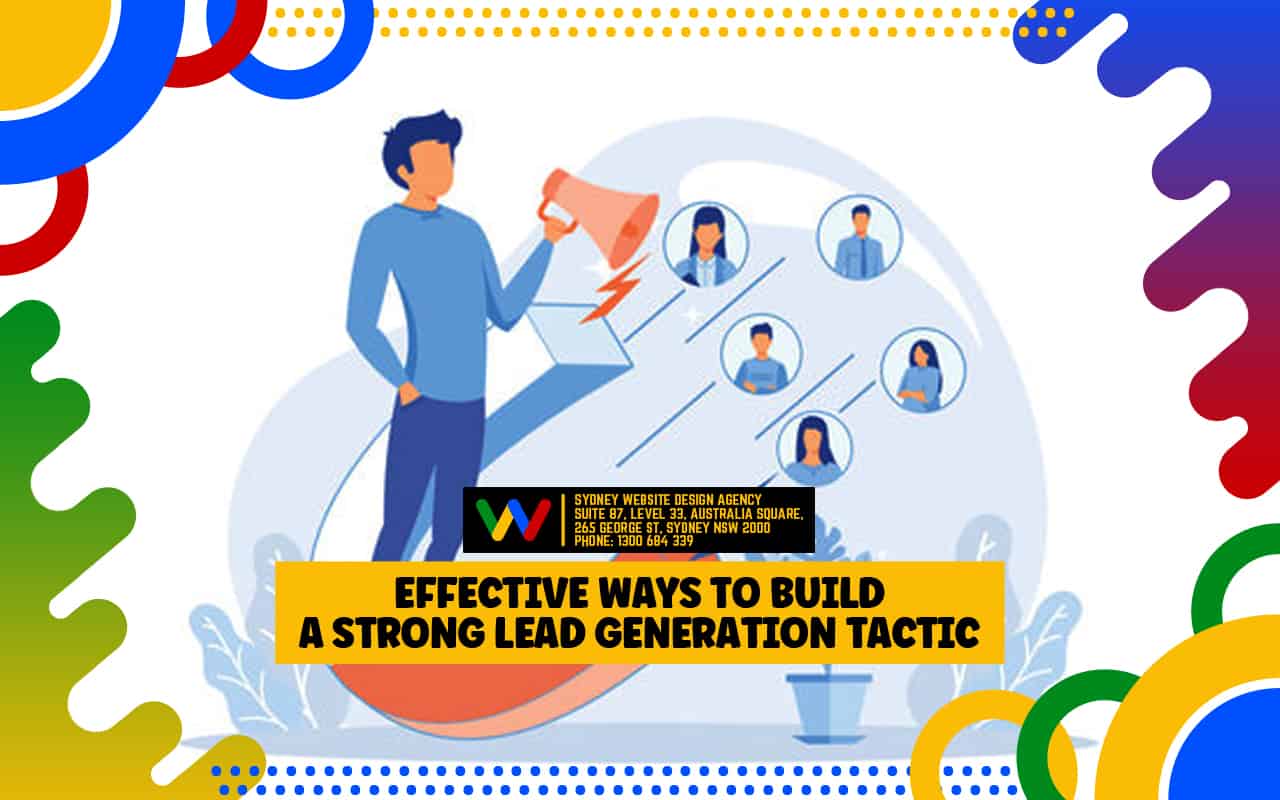
By now, you’ve probably heard of lead magnetism. It’s an important concept to understand and employ in your B2B marketing strategy. Lead magnets can be used to capture email addresses for targeted campaigns that are tailored to different types of customers.
Utilising Social Media Platforms
Social media is a powerful tool for businesses looking to increase leads and sales. Consider creating paid social media campaigns targeting specific audiences or promoting content related to your product or services. To ensure you maximise the reach of your campaigns, consider boosting posts or running ads on platforms such as Facebook, Instagram, Twitter, and LinkedIn.
Blogging and Content Creation
Content is king when it comes to lead generation. Creating content that is valuable and engaging can help you capture the attention of potential customers. Consider setting up a blog or creating white papers, e-books, webinars, case studies and how-to guides to attract leads. Additionally, optimise your pages for search engines with keywords related to your industry and product offerings. This way, more visitors will find your website through search engine results pages (SERPs)
Employing Email Strategies
Email marketing campaigns are great for nurturing leads and converting them into sales. To maximise its effectiveness, consider segmenting your lists according to different interests or demographics, so you can tailor messages accordingly.
Optimising Your Website for Conversions
Your website should be designed with lead generation in mind. Make sure it is easy to navigate, mobile-friendly and fast loading. Additionally, keep CTAs such as “contact us” or “subscribe” buttons prominently visible on your pages, so they are easily discovered by visitors. Utilise A/B testing to determine which elements of your website work best and yield the most conversions.
These strategies can help you build a strong B2B lead generation tactic that will drive more sales and generate qualified leads for your business. Use these tactics to boost your customer conversion rate and attract high-quality buyers.
Lead Generation Strategies Frequently Asked Questions
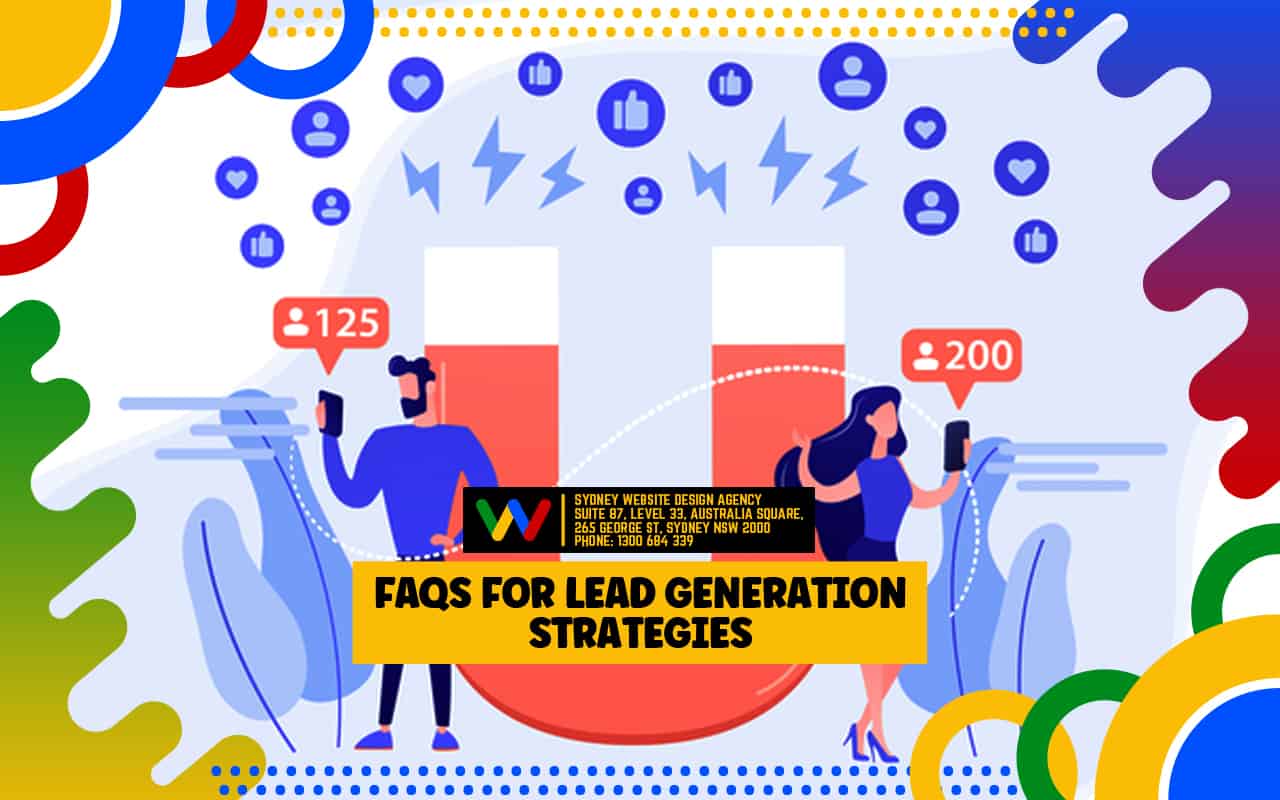
What are some effective lead generation tactics for B2B businesses?
How can a landing page help with lead gen?
What is the role of lead scoring in lead generation marketing strategies?
How do you create an effective lead generation plan?
What are some top lead generation tools for B2B businesses?
How can content marketing strategy drive inbound lead generation?
What is demand generation and how does it relate to lead generation?
How can sales teams benefit from using a lead generation tool?
How does lead qualification improve the overall sales funnel?
What are the top lead generation strategies?
How do you qualify leads in a lead gen strategy?
Lead Generation Strategies for Rapid Growth

A lead generation strategy is essential for businesses looking to scale and grow. With the right tactics, you can generate high-quality leads that will turn into customers. Utilise content creation, paid social media campaigns, in-person events, website optimisation and email marketing strategies to drive more sales and generate qualified leads. These strategies will help your business attract the right buyers and boost your customer conversion rate for rapid growth.
In conclusion, lead generation strategies for any business looking to scale and grow. By utilising the appropriate tactics such as creating content, running paid social media campaigns, attending events in-person, optimising your website, and creating effective email marketing campaigns – businesses can generate high-quality leads that will turn into customers. With some hard work and strategic planning, companies will be well on their way to rapid growth with a successful lead generation process.

